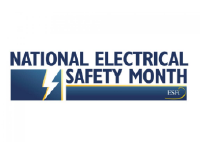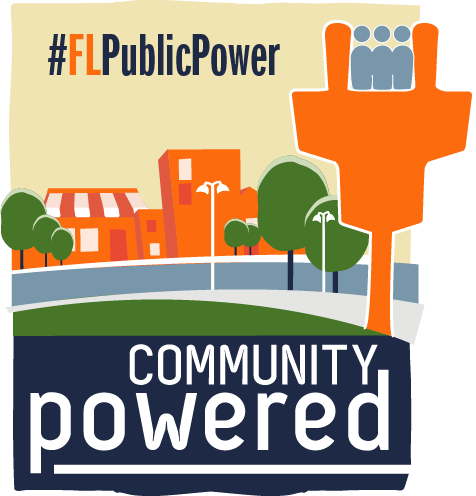FMEA Encourages Electrical Safety Before, During and After Storms
 May is National Electrical Safety Month and the Florida Municipal Electric Association (FMEA) is urging Floridians to take this month before the Atlantic hurricane season starts to review important electric safety measures that can prevent the loss of lives and property before, during and after severe weather or natural disasters.
May is National Electrical Safety Month and the Florida Municipal Electric Association (FMEA) is urging Floridians to take this month before the Atlantic hurricane season starts to review important electric safety measures that can prevent the loss of lives and property before, during and after severe weather or natural disasters.
“Florida has experienced three very active hurricane seasons in a row and forecasters are predicting a near to slightly above normal hurricane season for 2019. Now is the time to start preparing and checking for any potential electrical hazards around your home and business,” said Amy Zubaly, FMEA Executive Director. “Taking precautionary measures now and again before, during and after strong storms or natural disasters helps to ensure the safety of you, your family, your home and your business.”
As hurricanes or major storms are approaching and passing through, FMEA offers these electrical safety tips:
BEFORE THE STORM:
- Charge all phone and communications devices.
- Move computers and other electronic devices to countertops or tables to avoid water damage from flooding.
- Turn off circuit breakers to avoid power surges.
- If you are evacuating, shut the main power off to your home at the main circuit breaker to
avoid fires caused by rising waters.
- If you own a swimming pool, turn off all pumps and filters otherwise water from the
approaching storm can damage them.
DURING THE STORM:
- Stay indoors during hurricanes and away from windows and glass.
- Never operate a portable generator inside your home or garage.
- Don’t try to power your home’s wiring by plugging the generator into a wall outlet. This is
incredibly dangerous and presents an electrocution risk to utility workers and neighbors
served by the same utility transformer.
- Use battery-operated carbon monoxide alarms in your home and garage so you can detect
any dangerous amounts of emissions when running a generator.
- Don’t run a portable generator in the rain unless you cover and vent it.
AFTER THE STORM:
- Have a licensed electrician inspect any water-damaged electrical equipment and electronics. Electrical items, such as circuit breakers, fuses, receptacles, plugs and switches, can malfunction when water and silt get inside. Discard them if they have been submerged.
- You will need a licensed electrician to repair any damage to your home’s weatherhead before power can be restored.
- If flooding has occurred, have a qualified electrician inspect your electrical system.
- Do not touch a circuit breaker or replace a fuse with wet hands or while standing on a wet surface.
- Report and stay away from downed power lines and always assume they are energized. Never touch a person or object that is in direct or indirect contact with a downed power line, such as a fence, tree limb or water. Instead, call 911 immediately.
- Avoid flooded areas as they may be electrified. Even nonconductive materials like wood or cloth that are slightly wet can conduct electricity.
To commemorate National Electrical Safety Month, the Electrical Safety Foundation International (ESFI) spearheads an annual campaign to educate key audiences about the steps that can be taken in order to reduce the number of electrically-related fires, fatalities, injuries and property loss. This year's theme is "Electrical Safety During Natural Disasters" and focuses on the importance of preparing, weathering and rebuilding after natural disasters.
For more information on ESFI, click here.
 Enter your email address in the
Enter your email address in the 